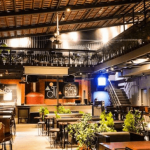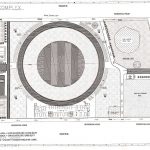
By Anuksha Dey
Residents of Sector 4 in HSR Layout are putting up with noise pollution caused by restaurants located near their houses. Despite complaints from them, no proper action has been taken by the authorities so far.
Restaurants are allowed to stay open till 1am. Loud music, celebrations, and use of industrial equipment late into the night causes sound pollution that disturbs residents at night, particularly the elderly. While residents are upset about the loud noises coming from restaurants, the proprietors of these eateries are inconvenienced by frequent complaints from citizens that hinder their business.
Resident-restaurant conflict
Lakshmi Gowda who has been living on 17th Cross Road since 1999 has opposed the opening of Kebarbiq right next to her building ever since it was set up last year. “When the restaurant opened before Covid, they said they would shift the location of the chimney,” she told Residents Watch. “There are two chimneys directly behind my bedroom. The noise from the chimneys does not allow me to sleep.”
When she complained to the Bruhat Bengaluru Mahanagara Palike (BBMP), the problem was temporarily resolved when the proprietor agreed to switch off the chimneys at night. “But soon, the restaurant went back to its old ways as the chimneys stay on till 1 am, after which the staff washes the dishes and makes more noise.”
However, Jasleen Ali, the proprietor of the restaurant, has his own set of complaints against Lakshmi. “We have moved the exhaust to the fifth floor,” he told Residents Watch. “We tried switching off the exhaust after 10pm for some time, but it is unhealthy for the staff to work in the kitchen without a chimney.” Lakshmi has finally resorted to using a stick to beat on the tin shed to catch the staff’s attention when the owner does not pick up the call. The owner has claimed this has been damaging his property.
Intervention by the authority
Lakshmi also tried reaching out to BBMP, but no sustainable solution was found. BBMP health inspector Vinod G says, “The road is on 80-ft road. It’s a commercial road and restaurants are allowed to operate there. We have given a notice to the owner about sound pollution, and the Pollution Control Board was also informed. We have not received any complaint after the lockdown.”
However, Lakshmi says she reached out to BBMP on 17th December through Whatsapp, but the issue has not been resolved so far. She has called the police a few times, to reduce the amount of noise that the restaurant was generating.
Bharti Sandur, another resident of Sector 4 is facing similar problems with a gym and a restaurant next to her house. She too has called the cops a few times to complain about the commercial establishments.
An amicable solution
While the authorities have been unable to resolve the conflict at Kebarbiq, Shabbir Syed, president, Sector 4 Residents Welfare Association, who lives next to Shree Muthahalli Veg restaurant, has managed to find an amicable solution. “I am a cardiac patient,” he told Residents Watch. “I have been having problems with the noise caused by the restaurant for the last five years.” He requested proprietor Prashanth L to build a thermal wall to prevent the noise. “Now the restaurant is being shifted to the next building. The owner has agreed to put up a concrete wall near the new building and has even promised to shift the kitchen and washing of utensils to the other side of the building.”
Better planning needed to prevent conflicts
According to BBMP’s masterplan of 2015, if the road width is over 40 ft, 20% of the area can be allowed for commercial and other uses. The permissible level of noise in these commercial areas is higher than what is allowed in a residential area. Therefore, the BBMP does not take action against restaurants causing noise pollution.
Bharti believes the root cause of the issue is poor planning. “Initially, all these houses were in a residential area,” she says. “The commercialisation of the streets only began recently. You cannot sell an area as residential and later convert it for commercial purposes. There should be proper zoning laws.”




